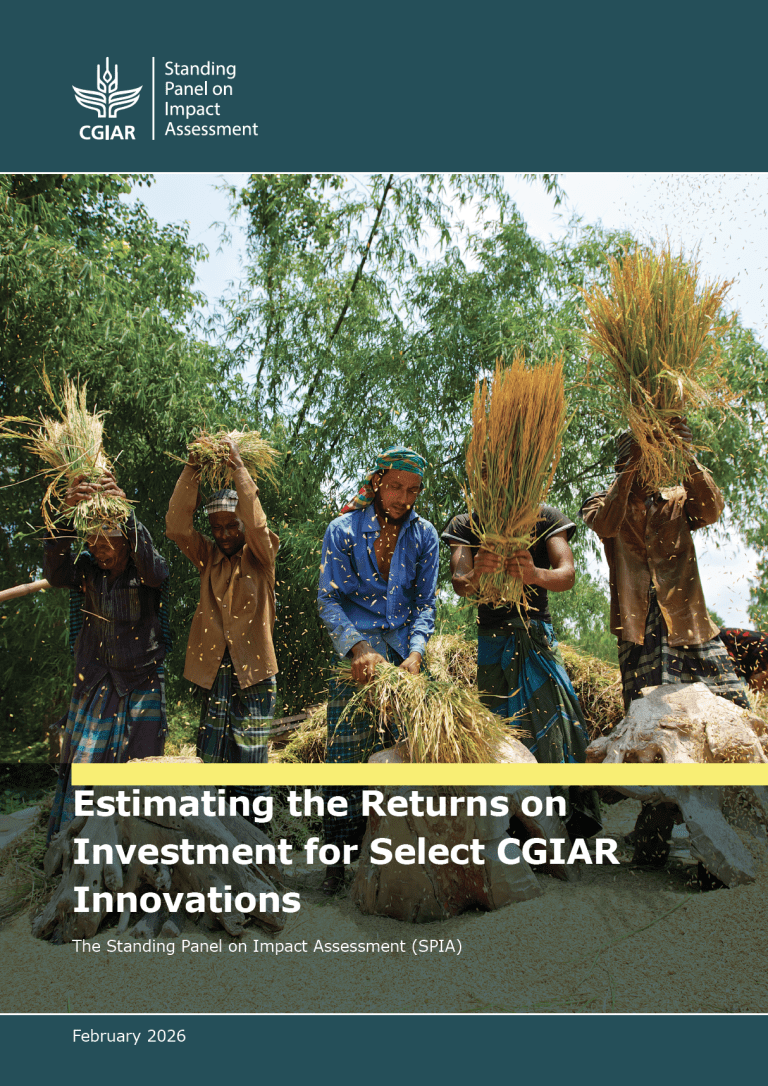The Standing Panel on Impact Assessment (SPIA) is an external, impartial panel of experts in impact assessment appointed by the System Council and accountable to it. SPIA is responsible for providing rigorous evidence of the reach and causal impacts of CGIAR research and for providing independent strategic advice to the CGIAR System on efficient and effective impact assessment methods and practices, including those measuring impacts beyond contributions to science and economic performance, and on innovative ways to improve knowledge and capacity on how research contributes to development outcomes.
SPIA’s mandate, as defined in the SPIA Terms of Reference, is to:
- Expand and deepen evidence of impact of CGIAR research investments on the five CGIAR impact areas
- Support CGIAR’s strong commitment to embed impact assessment into the System.
To fulfill its mandate, SPIA works with a wide range of partners inside and outside CGIAR. SPIA also works with other CGIAR independent advisory services and may convene strategic impact assessment discussions at the request of the System Council.
The SPIA workplan comprises three pillars:
- Country studies of CGIAR reach at the System level
- Causal impact assessments
- Use of rigorous evidence
SPIA evidence, approaches, and reflections on the impact of CGIAR research can be found in synthesis reports, technical notes, and impact briefs as well as in blogs on our website.






